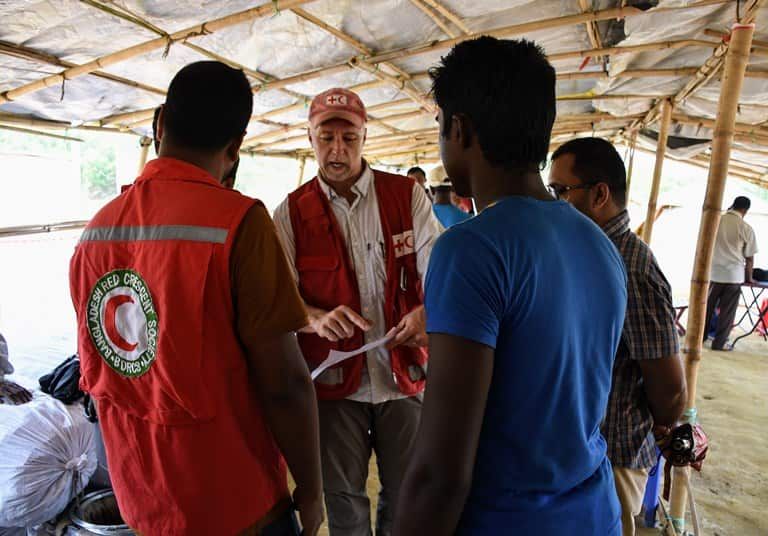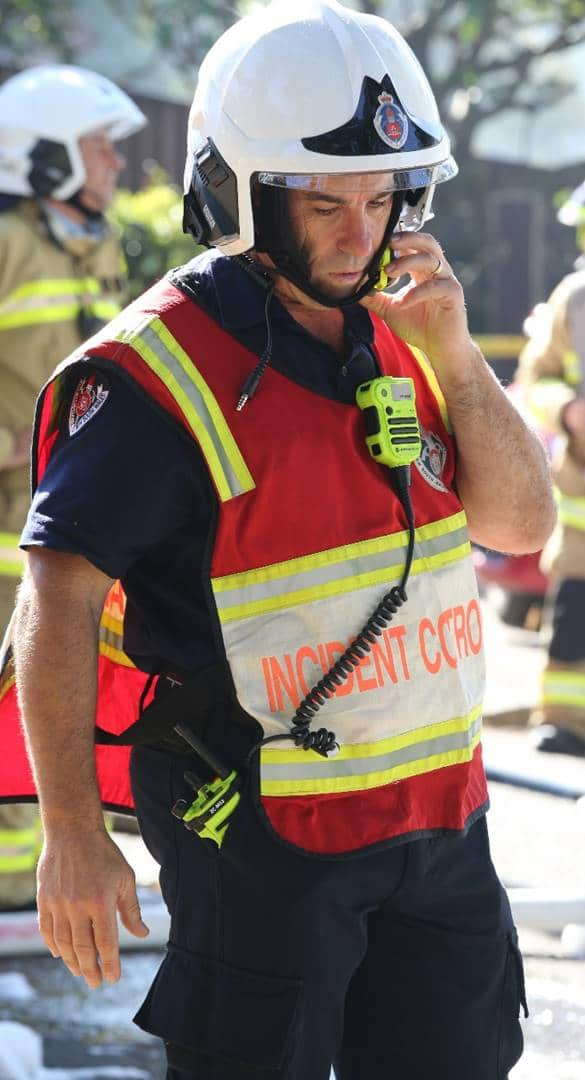When disaster strikes, it’s the international aid workers who drop everything to go and help those in need.
But working in disaster zones can take its toll. Here’s what two had to say on how they cope with their high stakes jobs.
‘When it goes poorly you feel miserable and responsible.’
Don Johnston, 48, has worked as an aid worker for 16 years, most recently for the International Red Cross.
His primary duty is to uncover the gaps in response efforts and determine what the organisation can provide.
“Typically, they go smoothly but if you rush or if you’ve underestimated how many people would be affected it can go awry,” he says.

In his first deployment to Angola, in central Africa, due to a widespread famine, Johnston’s team had not anticipated the number of people needing food relief, causing individuals to become unruly and fight for food supplies.
“People tried jumping on the ground to grab the grain and eat it, but it was dry and uncooked. It was like trying to eat uncooked rice,” Johnston says.
“One boy who had walked for days was sitting there trying to eat this uncooked food … I will never forget his face when we were forced to retreat.”
As a task force leader, he says he felt responsible when planning failed.
“People are very desperate and they’re trying to feed their families and you have brought out the worst instincts in people trying to survive.”
After a few years of working as an aid worker, Johnston says he began to feel flat and numb.
“Looking back, I can see for several years the effects of working in conflict areas really made me withdrawn and untouchable,” he said.
“I found it hard to loosen or let go, it was like a defence mechanism.”
Over time he explains that practicing resilience and the birth of his first child helped him open up again.
“When you’re working around people who have had their lives taken from them it’s supposed to be difficult and it’s supposed to wrench you and make you question the world.”
‘I don’t ask questions’
Paul Bailey is a taskforce leader for International Search and Rescue Advisory Group (INSARAG), a global network of more than 80 countries and organisations operating under the UN.
In recent years the task force responded to tropical cyclone Gita in Tonga, the bushfires in Greece and the tsunami in Palu, Indonesia.
“We have to deploy assuming the worst possible scenario, then work with other agencies from there to assess what the best course of action is,” says the 54-year-old.
“We could have turned up and there might have been bodies all over the street or we could get there and everything’s fine.”
The operation which Bailey leads is primarily involved in specialised search and rescue. This can involve extracting victims from rubble, cutting concrete and moving large pieces of debris.

With 34 years of experience in search and rescue, Bailey says fear is an important part of maintaining focus.
“Being scared is good because it makes me remember my training. Being scared is very different to panicking,” he says.
Bailey says he learnt very quickly to develop coping mechanisms.
“I simply don’t ask questions about who they are. Once I get someone out, I would never ask what their condition was going forward.”
Despite facing some extremely difficult situations, Bailey says he is always grateful for the experiences that the job has provided.
"It isn’t the most glamorous job, nor does it pay the most but it does allow me to do things others can't and to help in ways that are very fulfilling."
Insight is Australia's leading forum for debate and powerful first-person stories offering a unique perspective on the way we live. Read more about Insight
Have a story or comment? Contact Us


